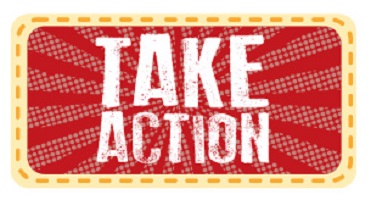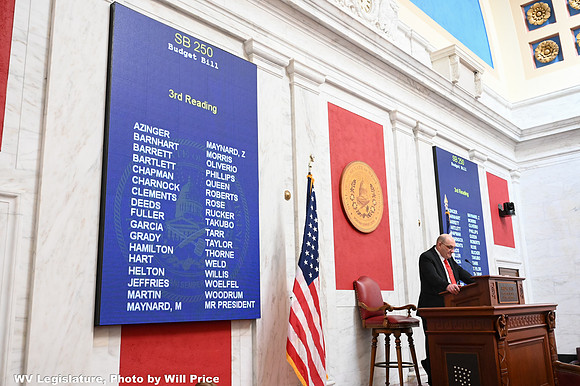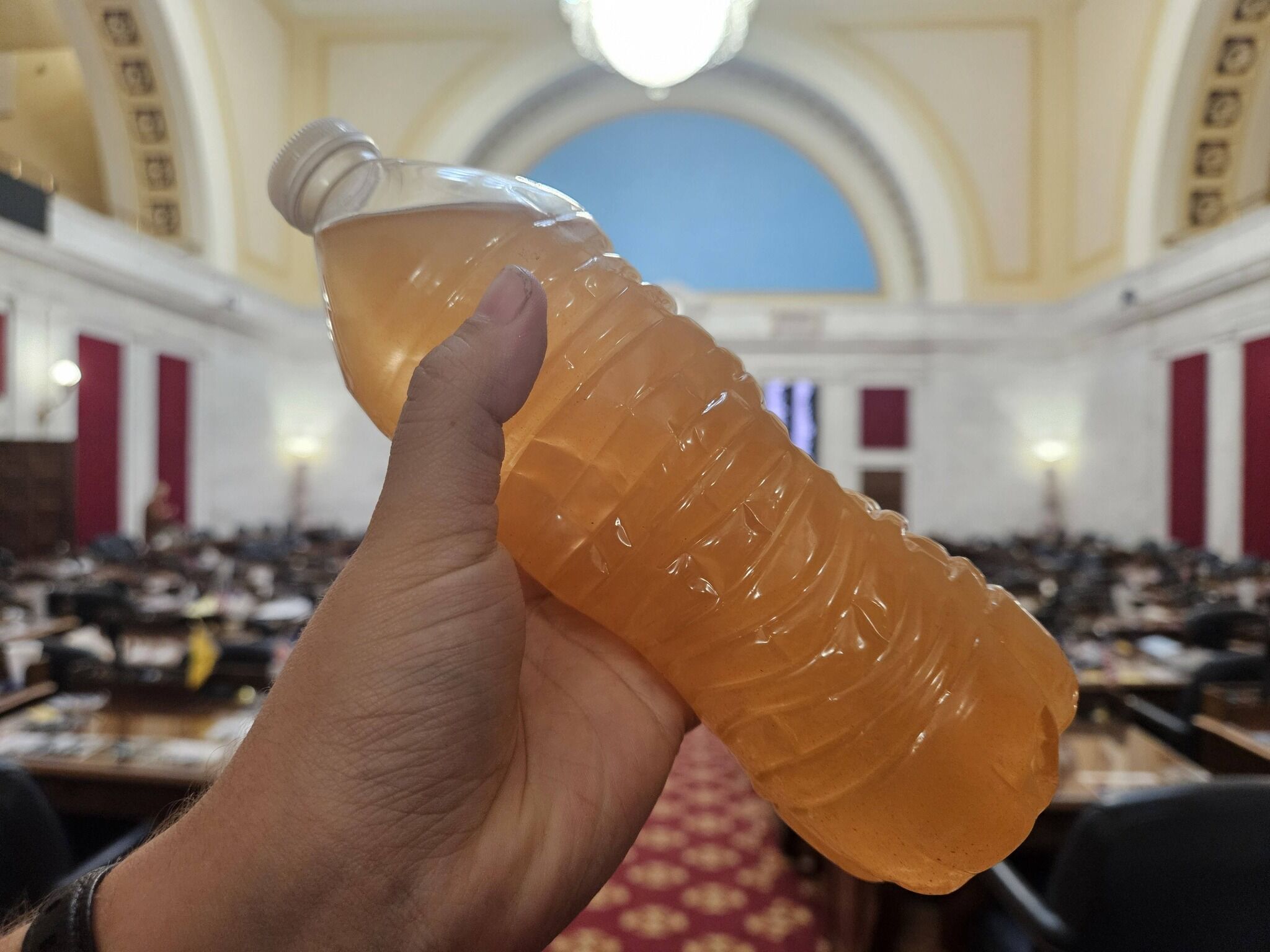- Like
- Digg
- Del
- Tumblr
- VKontakte
- Buffer
- Love This
- Odnoklassniki
- Meneame
- Blogger
- Amazon
- Yahoo Mail
- Gmail
- AOL
- Newsvine
- HackerNews
- Evernote
- MySpace
- Mail.ru
- Viadeo
- Line
- Comments
- Yummly
- SMS
- Viber
- Telegram
- Subscribe
- Skype
- Facebook Messenger
- Kakao
- LiveJournal
- Yammer
- Edgar
- Fintel
- Mix
- Instapaper
- Copy Link
Protect Our Water from ‘Cancer Creek’!
Shared from our partners at the WV Environmental Council
This week, both HB 2811 and HB 2506 (‘Cancer Creek’ bill) were passed by the West Virginia Legislature, and await the Governor’s signature. Both bills chip away at protections on our drinking water, placing industry over concerns for public health.
Sign the petition, and ask Governor Justice to veto HB 2506. Ask him to stand up for water and the health of all West Virginians.
The war on water continues.
SB 687, passed on Wednesday by the Senate, would dramatically undermine protections for streams across the state by changing West Virginia’s narrative water quality standards. Bottom line, SB 687 makes it easier for the coal industry to get away with pollution that kills life in streams. This bill will be before the House this week.
Please, send a letter and call your Delegate and ask them to vote no on SB 687.
Medical Marijuana Bill Advances to House!
The WV Senate just passed SB 386, which will legalize medical marijuana, in an absolutely historic vote. Now we must call, email and visit House Speaker Tim Armstead and convince him to run SB 386 on the floor for an up or down vote.
Tell Speaker Armstead and your own delegates that this bill deserves a chance to be debated and voted on by the full chamber, so it may either succeed or fail on its own merits, and not simply for procedural reasons. Thousands of West Virginians afflicted with chronic illnesses and debilitating conditions could find relief and regain a measure of their dignity once they are no longer forced to break the law to obtain this vital medicine.
Call or Write to Speaker Armstead:
(304) 340-3210
armstead@wvhouse.gov
Contact your Delegates: Visit https://openstates.org/find_your_legislator/, enter your location information and start calling!

 Graphic Courtesy ACLU of WV
Graphic Courtesy ACLU of WV
Tell the House Judiciary Committee to Say ‘NO’ to More Money in Politics: Act Now
On Monday, the West Virginia Senate passed a major campaign finance overhaul bill (SB 539) that would decrease disclosure of political spending while also increasing the amount of money that can be given to the candidates, political action committees (PACs), and political parties.
Although SB 539 increases disclosure in some small ways, like requiring PACs and entities making independent expenditures to file reports electronically, the overall effect of the bill is a weakening of disclosure while allowing more money into a broken system that favors the wealthy and special interests.
The bill is now before the House Judiciary Committee. Act now by sending a letter to committee members urging them to oppose SB 539.
In addition to weakening some of our current disclosure requirements, SB 539 creates new loopholes and worsens existing ones that make it possible for groups that spend money on political ads to hide the identity of their donors. At the same time, the bill increases the amount of money that can be contributed to candidates by nearly three times, the amount of money that can be contributed to PACs by five times, and the amount the can be contributed to party committees by ten times.
We need more disclosure in our elections, NOT more money! If we want to discourage negative attack ads, give candidates the ability to respond, and inform voters about who’s trying to influence their votes the best thing we can do is require those who are spending money on our elections to disclose to the source of the money.
Please contact House Judiciary Committee members and tell them to oppose SB 539.
The House Judiciary Committee is also considering a bill that lets shady car dealers sell lemons without much risk of consequences, leaving buyers holding the bag. Send a letter now!
Senate Bill 216 is up for consideration by the House Judiciary Committee. This bill would weaken consumer protections for used car purchases.
Currently, when middle and upper income families purchase new cars they are protected by a “Lemon Law.” Low income families who can only afford to buy used cars have much less protection. Their used cars only have to be able to pass inspection and “operate properly in normal usage for a reasonable period of time.” The period of time that is “reasonable” depends mostly on what the consumer paid. Now the Legislature may take away even that protection and let used car dealers turn a blind eye to a car’s problems and sell it “as is”.
For example, one low income single mom had a car with a lot of miles on it. She had gotten an income tax refund, and she wanted to trade for a car with fewer miles that would keep getting her to work. She went to a used car lot, test drove a car around the block and it ran fine! She traded in her old car. She gave the dealer her tax refund as a down payment. She agreed to pay additional monthly payments. She started to drive the car home. However, she lived at the top of a hill and her newly purchased car had a bad transmission that would not pull the car up the hill!
Under current law the dealer has to fix the transmission. If an “as is” bill passes, then she will not be able to get her old car back, she will not be able to get her down payment back, and she will still owe the additional monthly payments. In addition, she will have to pay a bunch of money to fix the transmission before she can use the car to drive to work and support her family.
We are OPPOSED to SB 216 that lets used car dealers turn a blind eye to bad cars and sell them “As Is”. Write the House Judiciary Committee now and let them know we don’t want to let dealers sell lemons with no recourse for buyers!
SNAP Access Still Threatened by SB 60 Asset Testing
The House Judiciary Committee is currently considering SB 60, which would require an asset test for food-stamp (SNAP) recipients. This bill would limit assistance from the Supplemental Nutrition Assistance Program (SNAP) to households with less than $2,000 in assets ($3,000 for households with elderly and disabled people).
This unnecessary and cruel asset test would examine a household’s bank account, lottery and gambling income, cash, real estate, and personal property. Not considered would be retirement accounts, one vehicle, and one family home.
This bill would effectively punish the hungry for having a small nest egg by forcing them to empty their savings and sell their assets before they could receive any SNAP benefits. Restricting access like this will only force families to make the incredibly difficult decision to either hang onto their savings or be able to put food in the fridge.
Please take a minute or two to Call the Members of the House Judiciary Committee. Follow our link, click on the name of a member of the committee, and call their office number!
Consider sharing some of these important points when you call the Delegates’ offices:
- This is a whole new layer of bureaucracy. WV DOES NOT currently require all members of a household to undergo an Asset test in order for an individual to receive SNAP benefits. This is way outside the mainstream.
- There is no such thing as “Saving SNAP $$$.” This is Federal money that simply leaves the state. Why would we charge our taxpayers to send Federal $$ somewhere else, especially when that money feeds people?
- We should not put seniors and families with modest savings in a situation where they have to spend it all down in order to qualify for Federal Food Assistance, which is what the asset test does. That just isn’t right.
If we act now we have a chance to protect this vital program that serves the most indigent amongst us and puts food directly on the tables of families with starving children. Please call the committee now.




